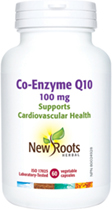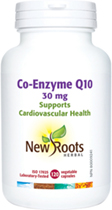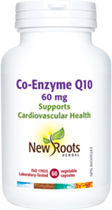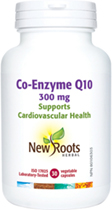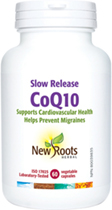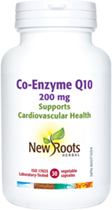Coenzyme Q10 and Cardiovascular Function
Coenzyme Q10 (CoQ10), also known as ubiquinol, is an antioxidant and participant in energy production processes within the cell. Coenzyme Q10 has been shown to benefit several parameters associated with healthy cardiovascular function, most notably reducing blood pressure by up to 17 points;[1] improving vascular endothelial function (meaning the cells lining the inside of the blood vessels), resulting in a “smoother” pattern of blood flow;[2][3] as well as improving the heart muscle’s pumping function.[4] In one study of over 400 patients with heart failure, supplementation with CoQ10 was shown to reduce deaths due to cardiovascular events (9% v. 16% in the placebo group), death from any cause (10% v. 18%), as well as the number of hospital admissions for heart failure–related reasons.[4] After two years of treatment, patients taking CoQ10 were rated as having less severe heart failure compared to the placebo group, although this was not the case at the beginning of the study.[4] Treatment with cholesterol medications called “statins” has been shown to reduce levels of CoQ10, so supplementation in these individuals is likely to be even more important as far as prevention of cardiovascular disease is concerned.[5]
Doses used in clinical trials for cardiovascular disease generally range from 100 to 300 mg daily. Because CoQ10 is fat-soluble, it should be taken with a fat-containing meal for best absorption.
References
- Rosenfeldt, F.L., et al. “Coenzyme Q10 in the treatment of hypertension: A meta-analysis of the clinical trials.” Journal of Human Hypertension. Vol. 21, No. 4 (2007): 297–306.
- Dai, Y.L., et al. “Reversal of mitochondrial dysfunction by coenzyme Q10 supplement improves endothelial function in patients with ischaemic left ventricular systolic dysfunction: A randomized controlled trial.” Atherosclerosis. Vol. 216, No. 2 (2011): 395–401.
- Hamilton, S.J., G.T. Chew, and G.F. Watts. “Coenzyme Q10 improves endothelial dysfunction in statin-treated type 2 diabetic patients.” Diabetes Care. Vol. 32, No. 5 (2009): 810–812.
- Mortensen, S.A., et al.; Q-SYMBIO Study Investigators. “The effect of coenzyme Q10 on morbidity and mortality in chronic heart failure: Results from Q-SYMBIO: A randomized double-blind trial.” JACC. Heart Failure. Vol. 2, No. 6 (2014): 641–649.
- Banach, M., et al.; Lipid and Blood Pressure Meta-analysis Collaboration (LBPMC) Group. “Statin therapy and plasma coenzyme Q10 concentrations—A systematic review and meta-analysis of placebo-controlled trials.” Pharmacological Research. Vol. 99 (2015): 329–336.

 Stores
Stores
